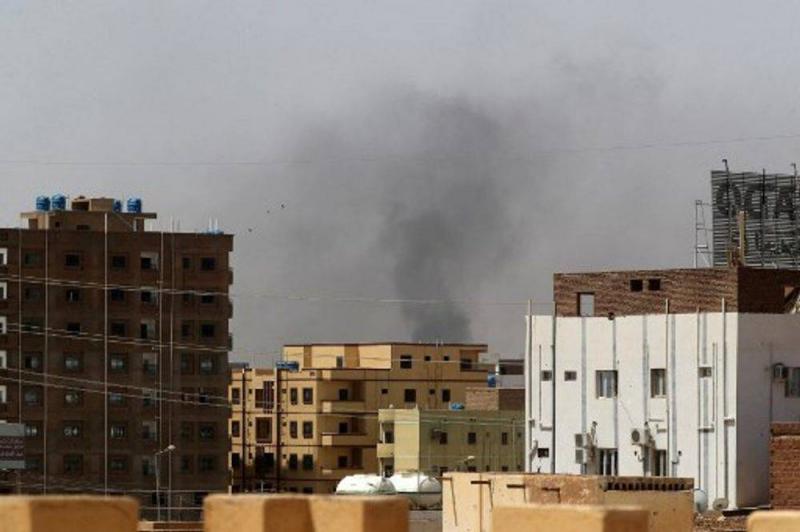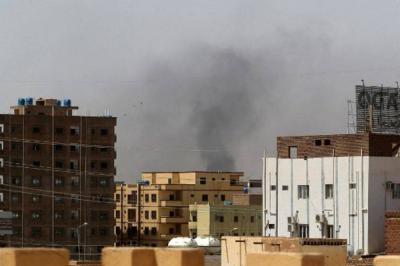Following the outbreak of clashes between the Sudanese army and the Rapid Support Forces in the Sudanese capital, Khartoum, and other cities, several Arab and foreign countries have been working to evacuate their stranded citizens from Sudan. On Monday, John Kirby, a spokesman for the National Security Council at the White House, announced that the United States is preparing its naval vessels to assist if Americans wish to leave Sudan. In an interview with MSNBC, Kirby stated, "We are still exploring options; we have military vessels still in the nearby area if necessary, but now is not the time for large-scale operations." He continued, "There are dozens of Americans moving overland in a convoy led by the United Nations to Port Sudan, and the U.S. military is helping to monitor it using drone systems."
European countries, China, and others had moved quickly to evacuate thousands of their citizens from Khartoum on the same day amid a notable calm in the violent fighting between the Sudanese army and the paramilitary force.
German Foreign Minister Annalena Baerbock announced that "we managed to airlift more than 300 people out of Sudan by this morning," noting that "this number includes citizens from Germany, Britain, Austria, Belgium, America, and others." She stated that "efforts are being made to find ways to evacuate the remaining Germans still in Sudan, including through maritime evacuations."
A French warship is heading to Port Sudan to assist in evacuating people from Sudan. Two diplomatic sources told Reuters that "a French frigate is on its way to Port Sudan on the Red Sea to help transport evacuees from Sudan, escalating Western evacuation efforts from the African nation." One of the sources mentioned, "The French frigate Lorraine is on its way to the port but has not yet arrived in Sudanese waters."
U.S. Secretary of State Antony Blinken noted that "the convoys attempting to leave are facing issues," including robbery and looting.
The spokesman for the UN Secretary-General, Antonio Guterres, indicated that the UN has transported hundreds of personnel and their families from Khartoum and other locations in Sudan. Guterres renewed his call for all parties to cease hostilities and allow civilians to exit areas affected by the fighting, stressing that the UN will continue operations with its staff inside and outside Sudan. He also warned that the violence in Sudan "threatens catastrophic escalation within the country, which could extend to the entire region and beyond," urging members of the Security Council to use their maximum influence. He told the 15-member council, "We must all do everything in our power to prevent Sudan from falling off the edge," adding that the UN has not left Sudan. He continued, "We stand with them in this challenging time… I have allowed temporary transfers to other locations within Sudan and abroad for some UN staff and their families."
The sudden slide of Sudan into conflict between the army and Rapid Support Forces on April 15 has resulted in a humanitarian crisis and at least 420 deaths. Alongside millions of Sudanese lacking essential services and trapped in their homes, thousands of foreign diplomats, relief workers, students, and their families found themselves stuck in a war zone last week. Fighter jets bombarded the capital, and the main airport was at the center of the fighting, while artillery shells made entry and exit from Khartoum, one of Africa's largest cities, unsafe. Diplomats were targeted in attacks, and at least five relief workers were killed.
Despite ongoing pressures from countries concerned about the broader implications of the conflict and the safety of their citizens, neither side has committed to a temporary truce. However, the intensity of the fighting eased enough over the weekend for the United States to evacuate its embassy personnel using a military helicopter, prompting other countries to hasten their evacuations. At least two evacuation convoys came under attack; one was transporting Qatar embassy staff, and the other was carrying French nationals, one of whom was injured.
South Sudan has taken in about 10,000 refugees. Officials in the Renk area in South Sudan reported that around ten thousand refugees have entered the country from Sudan over the past few days, fleeing the fighting between the army and the Rapid Support Forces. Renk Commissioner Kak Badit told Reuters that "about 6,500 crossed the border on Saturday, and another three thousand arrived yesterday, with more arriving today."
The army commander in Renk, Daw Atoorjong, noted that three-quarters of the arrivals are South Sudanese citizens, with the remainder being from Sudan, Eritrea, Kenya, Uganda, and Somalia. He added, "Local authorities and residents are providing assistance to the newcomers … so far, humanitarian organizations have not intervened."




